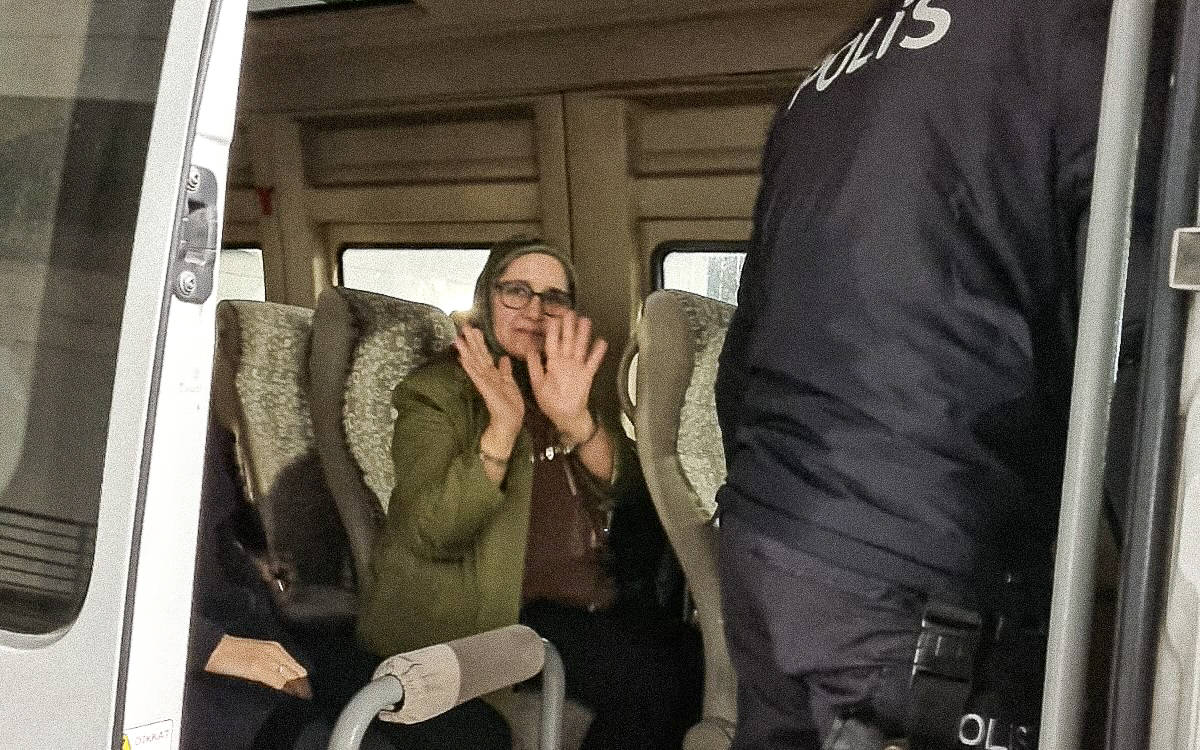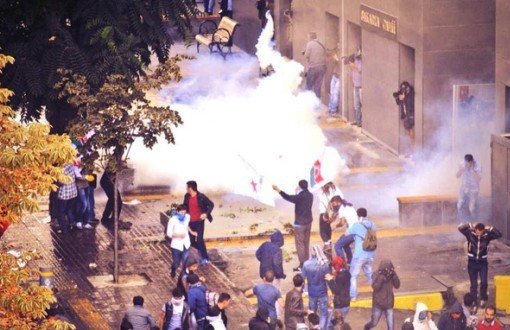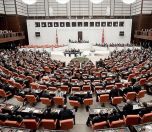Former İstanbul MP of the Peoples' Democratic Party (HDP), Hüda Kaya, was detained at İstanbul Airport as part of the Kobani case investigation conducted by the Ankara Chief Public Prosecutor's Office.
After a health check, Kaya was brought to the courthouse and referred to the court with a request for her arrest.
She appeared before the Ankara 4th Peace Criminal Judge through the Audio and Video Information System (SEGBIS). The court issued an arrest warrant for Kaya.
Lawyer: 'The prosecutor took a decision that Kaya was fugitive'
Kaya's lawyer Zilan Leventoğlu announced that Kaya's detention was related to the Kobani case where many politicians are standing trial for the Kobani events of 2014 and that an arbitrary decision of being a fugitive had been used as an instrument to detain his client at the airport.
Leventoğlu said the following:
“Despite being reachable for months and residing at her address, an arbitrary decision of being a fugitive has been made by the Ankara Chief Public Prosecutor's Office. After an unlawful fugitive decision was issued for Hüda Kaya on September 27, we appealed this decision. It has been repeatedly emphasized both verbally and in writing that she is not a fugitive, she is reachable at her residence, her phone lines are open, and she is always ready to provide a statement. She has recently visited the Istanbul Public Prosecutor's Office to provide a statement. She has even stated that she is willing to meet with the prosecutor's office and can come to Ankara if necessary for a statement, and the fugitive decision should be lifted. However, despite all this, the fugitive decision has not been revoked, and Hüda Kaya's desire to provide a statement has been arbitrarily obstructed. As a result, today, our client, Hüda Kaya, has been detained at the airport, despite being there for hours, having passport procedures completed smoothly, and being told that she cannot leave in an entirely arbitrary manner just 10 minutes before the flight was due to depart.”
What happened in the Kobani protests?
The 2014 Kobanî protests are large-scale rallies by pro-People's Defense Units (YPG) protestors in Turkey in the autumn 2014, in reaction to the siege of Kobanî launched by the ISIS. Large demonstrations unfolded in Turkey, and quickly descended into violence between protesters and the Turkish police. Before the protests, those who were waiting in the district of Suruç, Urfa in southeastern Turkey and wanted to cross the border to enter Kobani were intervened with pepper gas and rubber bullets. In the meantime, some pictures allegedly showing ISIS militia crossing the border of Turkey were published. The Suruç district of Urfa in Turkey and Kobani town in Syria are two Kurdish majority settlements on two sides of the border that are at a distance of 15 kilometers from one another. President and Chairperson of ruling Justice and Development Party (AKP) Recep Tayyip Erdoğan made statements indicating that they equated PKK with ISIS and one saying "Kobani is just about to fall". While the wounded coming from Kobani were kept waiting on the border, the wounded from ISIS were treated at hospitals. Several news reports in the press were published, reporting that "Kobani fell," refuted each time. After the People's Democratic Party (HDP) made a call to take to the streets against a possible ISIS massacre in Kobani, thousands of people protested in Kurdish-majority provinces as well as Ankara and İstanbul. While left parties also supported these protests, deaths occurred with the onset of police violence. Street conflicts ensued and 12 people were killed initially. A total of 42 people lost their lives from October 6 to 12, 2014. According to a report by the Human Rights Association (İHD), 46 people died, 682 people were wounded and 323 people were arrested in the protests held between October 6 and 8, 2014. As reported by the Anadolu Agency, 31 people lost their lives, 221 citizens and 139 police officers were wounded. |
(HA/AEK/PE)







.jpg)
